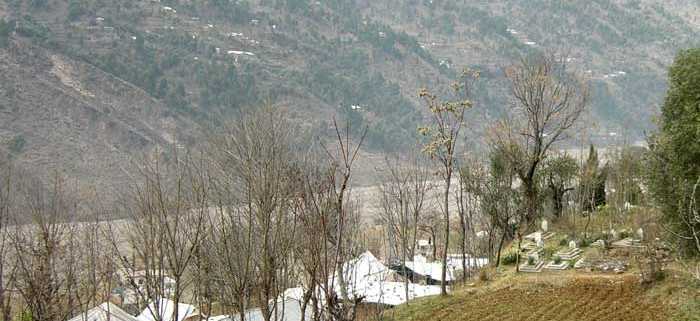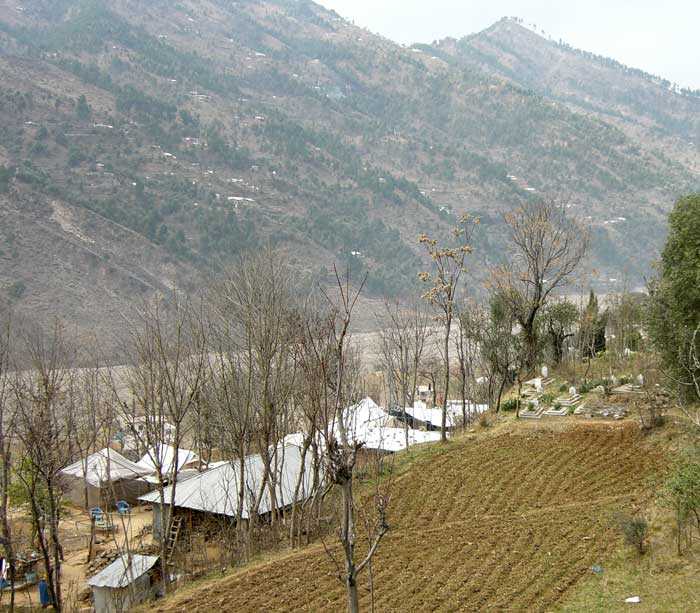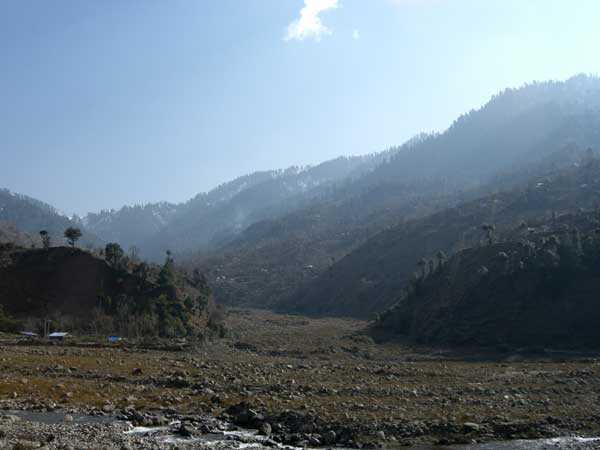8. People of the mountain
It is enough to open one’s eyes here in order to understand that only a small part of the population lives in cities like Bagh or even in villages. Kashmiri people have lived in these mountains for thousands of years, scattered in small groups of households which are always family related.
There they have their fields to cultivate, their animals to tend and the tombs of their ancestors. The slopes of the mountains are sprinkled with these mini villages of scattered houses and at night it seems as if the mountains have become full of lights like a Christmas tree.
Every group of dwellings has a chief and it is he who comes to the camp in order to bring us the requests of his people. This makes the work of Shigri easier because when the people agree to trust and to obey a chief, it is then possible to organize fast help for two or three hundred people a time, while it would not be possible to hear and discuss these matters with each and every one of them.
When the people obey their chief, the help and relief goods arrive promptly and are exactly what is needed.
But when they argue with and disobey their chief, he cannot bring them to agree upon what they need most and what they should ask for. In this manner, those who came to help them cannot do so properly because instead of making things easy, they make them complicated and everything takes more time.
At the end, the people who disagree themselves suffer, just because they differ in opinion and do not agree on anything.
This is a lesson for the children; grown up people also must obey to someone for their own good.
The people of Kashmir call this the “Echo of Life” and they tell a story: “A man brought his son up in the mountains and standing in front of the biggest one he shouted: You are ugly, and the echo returned to him: ugly, ugly, ugly… Then he shouted again: You are beautiful, and the echo returned to him the words: beautiful, beautiful, beautiful… The father said to his son: this is how life is, what you send ahead returns back to you, so do good to others”.
Bringing help to the people in the mountains has been difficult because there are no streets, only small paths, and when there is snow, many places have no access and they can only be reached by helicopter. I have seen no donkeys around so I imagine that everything is carried up and down on man’s shoulders, like in Afghanistan.
Before the earthquake, a traveller probably would have walked these slopes for weeks from village to village without encountering a road, immersed in nature, being welcomed as a guest at every step, drinking tea and eating beans and chapattis with the lovely people of the Kashmiri mountains.
| Previous | INDEX | Next |


















Leave a Reply
Want to join the discussion?Feel free to contribute!